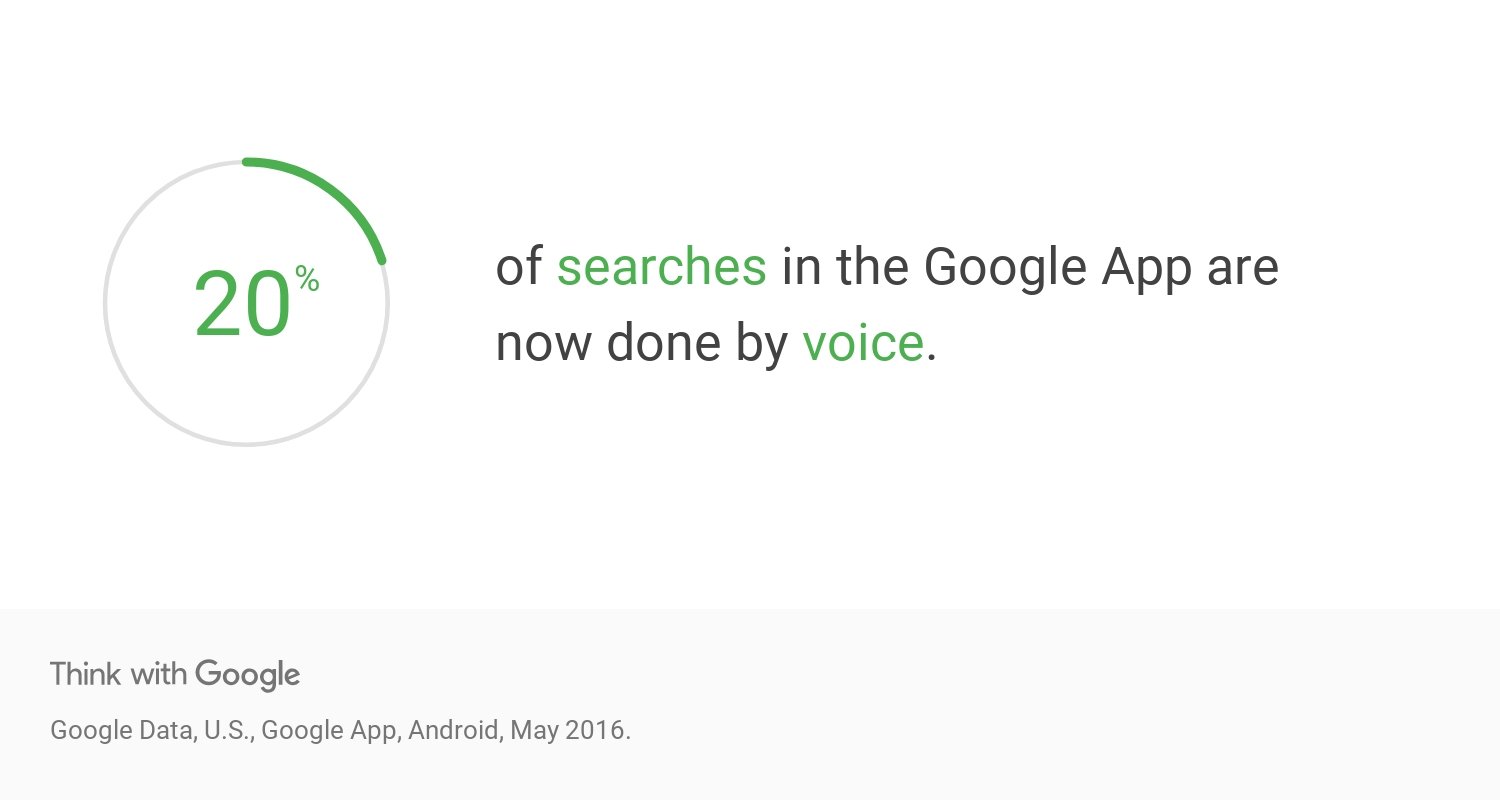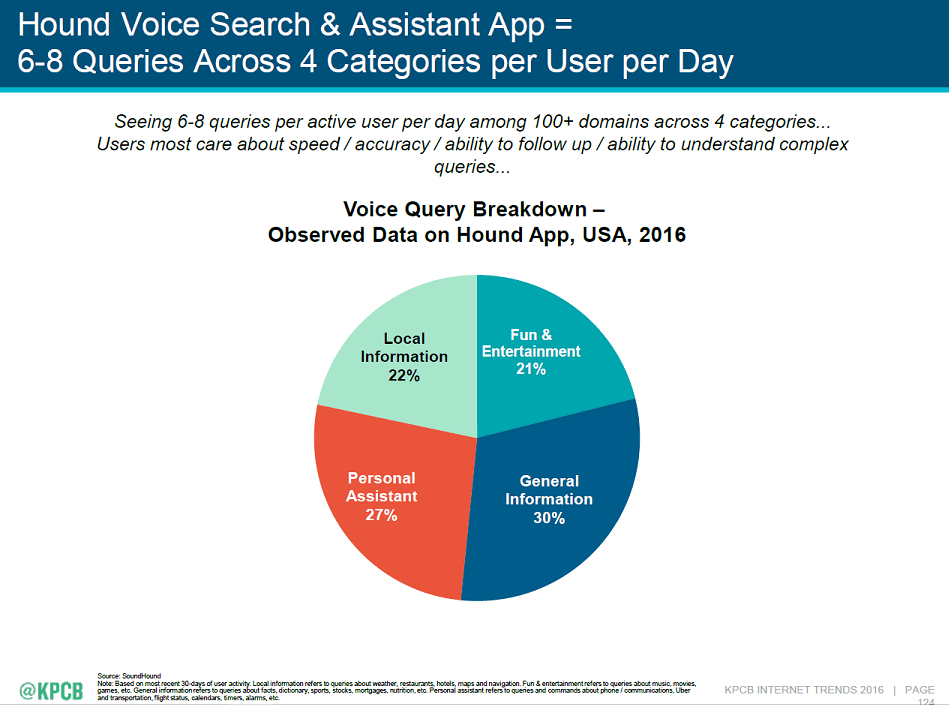As technology advances, the ways to search for and find information are multiplying. One of the more relatively recent methods quickly gaining popularity is voice search. This means in order to stay on top of the optimization game, websites must now also account for voice searches in their strategy.
In this post, we’ll look at why you need to start optimizing your website for Google voice search and how to do it. Let’s get started.
The Numbers
First and foremost: how popular is voice search?
According to Think with Google, a “one-stop shop for consumer trends, marketing insights and industry research,” as of May 2016, 20% of searches in the Google App were done by voice.

This number has only increased in recent years, and will continue to grow as time wears on, especially given that:
- 31% of smartphone users worldwide use voice tech at least once a week.
- The total voice searching user base among US adults is 42.7%.
- 50% of all online searches will be voice-based by 2020.
Now, how do we take advantage of this growing trend?
Location-Based Search
According to Search Engine Land, 22% of voice search queries were looking for location-based content.

Other reports put it as high as 58%. This is a huge opportunity for businesses with a physical location, especially medical practices, as potential patients will be voice searching for practices, procedures, and specialists within their immediate area
Take note: most people conducting voice search to find local businesses will use the phrase “near me”, so you may want to start including that key phrase in some of your website content.
Additionally, to give accurate responses, many search bots will use Business Listings information, so make sure your Google My Business page is up to date.
Typing vs. Speaking
When optimizing your content for voice-based search, it’s important to take into account the difference between how people type and how people speak.
Start by thinking about what questions people might ask related to your target keywords. For example, instead of typing “dermatologist Boca Raton, Fl”, people would voice search “Who’s the best dermatologist in Boca Raton, Florida?”.
To make your life easier, you can use a free online tool like Answer the Public which allows you to enter any given keyword and receive a map and a list of commonly asked questions related to that keyword.
I typed in dermatologist, and here’s what was returned:

You can also take a look at the “People also ask” section that appears in Google Search results after you use voice search to ask it a question.
Once you’ve found the most relevant questions based on voice queries, you can create content using those questions.
For example, you could create web pages or blog posts based on the following queries:
- “Who’s the top dermatologist in Boca Raton, Florida?”
- “What’s the difference between dermabrasion and microdermabrasion?”
- “What’s more effective, botox or acupuncture?”
- “How much does acne treatment cost?”
Other Things to Keep in Mind
How else can you make your website voice-search friendly? We’ve mentioned this is some of our other SEO posts, but ensuring your website loads fast is key to taking advantage of any search queries–whether traditional (i.e. typed) or via voice. This is especially important for voice search, as users will likely be opting for voice queries because they’re on the go or otherwise occupied.
Check out Google’s PageSpeed Insights to see how your website performs, both on the desktop and mobile, and get recommendations for how to make it load even faster.
Want to learn how DoctorLogic can help you optimize your practice’s website for voice search? Request a demo.


